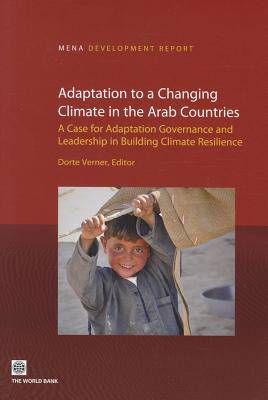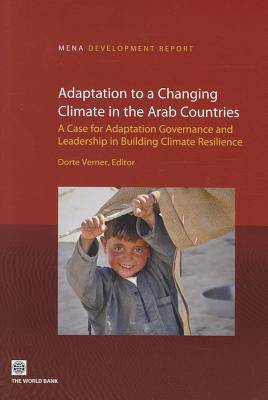
- Afhalen na 1 uur in een winkel met voorraad
- Gratis thuislevering in België vanaf € 30
- Ruim aanbod met 7 miljoen producten
- Afhalen na 1 uur in een winkel met voorraad
- Gratis thuislevering in België vanaf € 30
- Ruim aanbod met 7 miljoen producten
Zoeken
Adaptation to a Changing Climate in the Arab Countries
A Case for Adaptation Governance and Leadership in Building Climate Resilience
€ 36,45
+ 72 punten
Omschrijving
In the Arab countries, climate change is a risk to poverty reduction and economic growth, threatening to unravel many of the development gains that have been achieved. The Arab Region is already suffering adverse consequences from climate variability and change. This book provides information on climate change and its impact in the Arab Region, as well as technical guidance on climate adaptation options for policy makers. The areas addressed include the economic impacts of climate change (as measured by the reduction in household income and GDP); the impacts of climate change on the water, health, and tourism sectors; livelihoods and well-being in rural and urban areas; biodiversity; disaster risk management; as well as gender and other social relations. The report is written through a participatory and collaborative process, led by the World Bank in partnership with the League of Arab States, incorporating both regional and international experts on the topics.
Specificaties
Betrokkenen
- Uitgeverij:
Inhoud
- Aantal bladzijden:
- 440
- Taal:
- Engels
- Reeks:
Eigenschappen
- Productcode (EAN):
- 9780821394588
- Verschijningsdatum:
- 15/11/2012
- Uitvoering:
- Paperback
- Formaat:
- Trade paperback (VS)
- Afmetingen:
- 178 mm x 257 mm
- Gewicht:
- 839 g

Alleen bij Standaard Boekhandel
+ 72 punten op je klantenkaart van Standaard Boekhandel
Beoordelingen
We publiceren alleen reviews die voldoen aan de voorwaarden voor reviews. Bekijk onze voorwaarden voor reviews.










